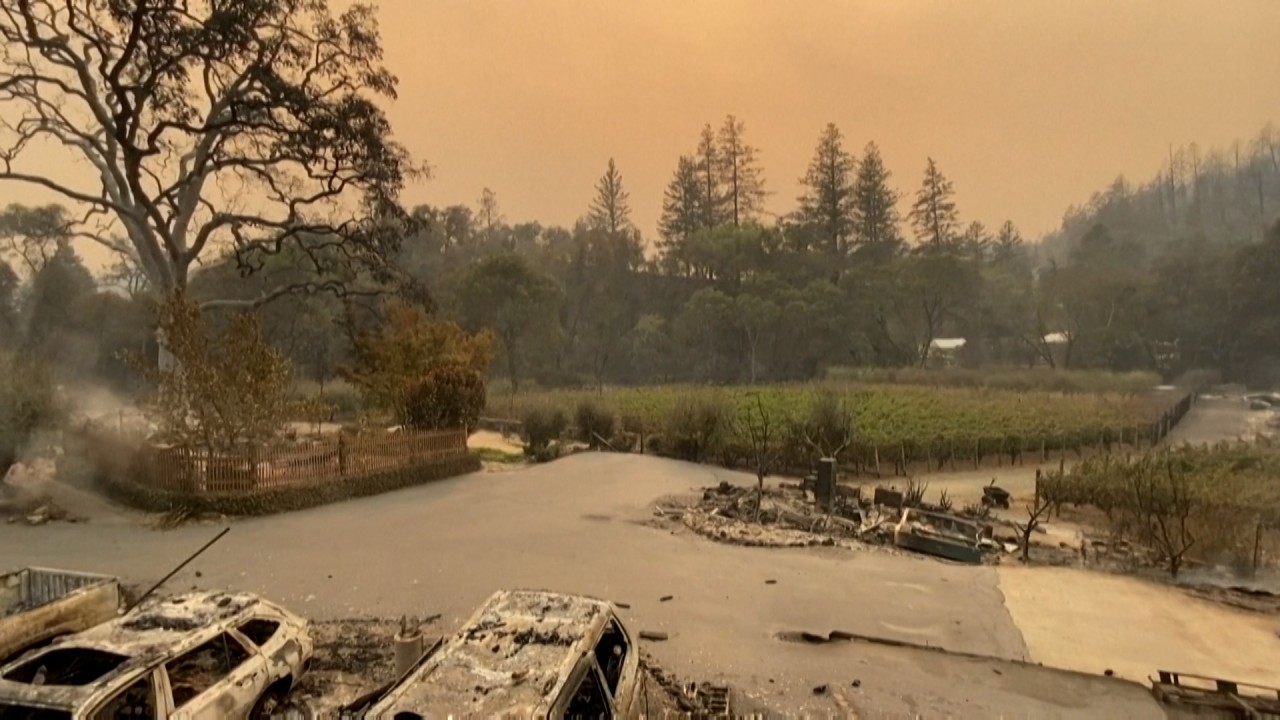
Malaysia’s getting hotter. Can its leaders rise to the climate challenge?
- Some Malaysian cities have recorded temperature rises of up to 6.7 degrees Celsius over the past two decades
- But with a leadership focused on retaining power and battling the coronavirus, there’s a danger climate change will take a back seat
Urban regeneration organisation ThinkCity has warned of the adverse effects of climate change and unchecked urban expansion on liveability in Malaysian cities such as Ipoh, where it found in a recent study that average temperatures had risen by an eye-popping 6.75 degrees Celsius between 1998 and 2019. The ThinkCity study that mapped land surface temperature found a similar increase of 6.7 degrees in Johor Bahur between 2005 and 2018.
Such drastic increases in temperature threaten the health of both humans and wildlife, and have spurred ThinkCity Managing Director Hamdan Abdul Majeed to urge all sectors of Malaysia’s economy to join the fight against climate change.
Yet despite Malaysia announcing a National Climate Change Policy in 2009 and signing a host of international agreements such as the United Nations Framework Convention on Climate Change (UNFCCC) and the Kyoto Protocol – as well as implementing domestic policies such as the Green Technology Master Plan and the National Energy Efficiency Action Plan – little headway has been made towards a more eco-friendly future.

Darshan Joshi, an analyst with Malaysia’s Institute of Strategic and International Studies, said the country’s climate change policy was in sore need of updating “given the magnitude of change … including within the renewable energy sector and the climate finance ecosystem” since it was first introduced more than a decade ago.
Malaysia has long maintained that more developed nations should take the lead in cutting carbon emissions, given the vast amounts of fossil fuels they consumed while industrialising. Still, the country has in recent years increased its dependence on coal – the most polluting energy source – a fact that has not escaped People’s Justice Party MP Wong Chen.
“It is incredible to note that in the last decade or so, more and more coal power plants were approved and built,” he said in an interview. “Coal power plants are currently the biggest producer of electricity at 43 per cent. To do our bit for climate change, we need to revamp the entire energy sector and get rid of crony capitalism. The only way forward is to commit to zero new coal power plants, focus on the less polluting gas-fired plants and increase renewable energy sources.”
In 2015, Malaysia pledged by the year 2030 to reduce its “emissions intensity” – the level of greenhouse gas emissions per unit of economic output – by 35 per cent of 2005 levels. In its submission to the UFCCC, the government promised a further 10 per cent reduction contingent upon “climate finance, technology transfer and capacity building from developed countries”.
Is Singapore’s pleasant chill a hint of coming climate change?
That deadline is now less than 10 years away, yet Malaysian policymaking remains heavily focused on short- to medium-term challenges – primarily economic and political – leaving long-standing and broader issues like climate change out in the cold.
“Dangerous climate change presents a long-term economic threat that is ongoing and will increase in scale and scope,” said Yin Shao Loong, a senior research associate at the Khazanah Research Institute.
“It requires high-level political will, by the prime minister and cabinet, to commit national resources to address the two main challenges of contributing to the global effort to reduce greenhouse gas emissions and preparing Malaysian society, government, infrastructure and the economy to address climate vulnerabilities and adapt to unavoidable climate change that is already locked in by past emissions.”
Political economist Khor Yu Leng of Segi Enam Advisors said a “deep sense of unfairness that developing countries like Malaysia are being asked to do more than the richer ones on climate change” had also contributed to the sluggishness of policy movements.
Many policymakers in developing countries believe that we have a right to pollute, industrialise and enjoy more material development to catch up with the more advanced nations
“Many policymakers in developing countries believe that we have a right to pollute, industrialise and enjoy more material development to catch up with the more advanced nations. It is very hard to put an enlightened argument against this kind of nationalistic economic thinking,” she said.
Without such a body to coordinate the country’s climate response, Malaysia is left with “a situation where policy implementation for climate change action is fragmented across sectoral policies and enshrined in budgets across multiple ministries”, according to Darshan, the Institute of Strategic and International Studies analyst.
Climate change Malaysia: floods, less food, water shortages, yet complacency
The current government’s ability to mobilise finances, coordinate planning and allocate the required resources to transform the nation’s energy and built infrastructure has also been called into question.
The pandemic has “tested the government’s ability to respond to a short-term crisis”, said Yin of the Khazanah Research Institute, adding it should be considered “a rehearsal for the climate challenge” which many in power at the moment only see as a “distant existential threat”.
In late 2019, Malaysia announced it had achieved roughly a 33 per cent reduction in emissions intensity relative to 2005 levels, putting it on track to meet its international commitments – but observers say more still needs to be done.
The current government’s preoccupation with its slim parliamentary majority and focus on rolling out a national vaccination plan means further forward progress has largely stalled. Darshan suggested decoupling future emissions reduction targets from GDP growth, and tracking climate-related expenditures – a tool known as “budget tagging” – to efficiently assess financing and allow policymakers to design the appropriate mechanisms for the country to both adapt to climate change and mitigate its effects.

02:45
2020 set to rank as one of Earth’s three hottest years on record, says United Nations
Meena Raman, president of Friends of the Earth Malaysia, called for the country’s response to the climate crisis to be “mainstreamed at the implementation level – be it in undertaking adaptation or mitigation measures in most of these sectors which continue to go on with business as usual”.
“Policies and plans that are made at a high level often do not respond to the actual capacity on the ground, be it in terms of expertise, technology, finance, human resources or simply, awareness,” she said, highlighting problems with land use, deforestation for monoculture crops and a lack of corporate environmental accountability.
“The national policy [on climate change] was comprehensive for the time that it was produced back in 2009, but follow-up actions to mainstream climate change into government agencies, private sector and economic plans have not been fast enough,” she said. “Malaysia needs to quickly decarbonise its development as there isn’t much time left.”

